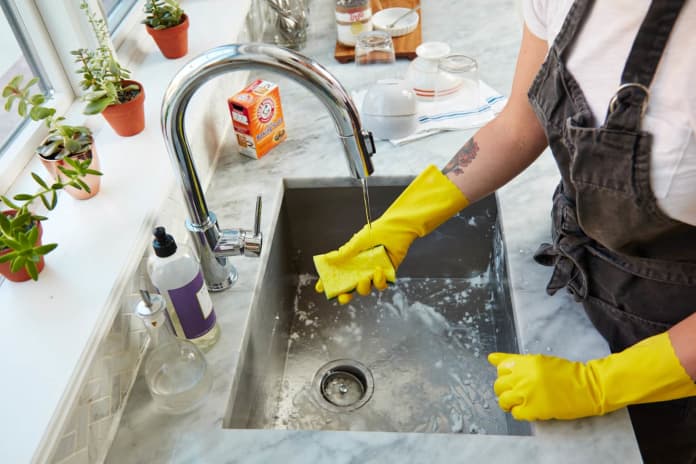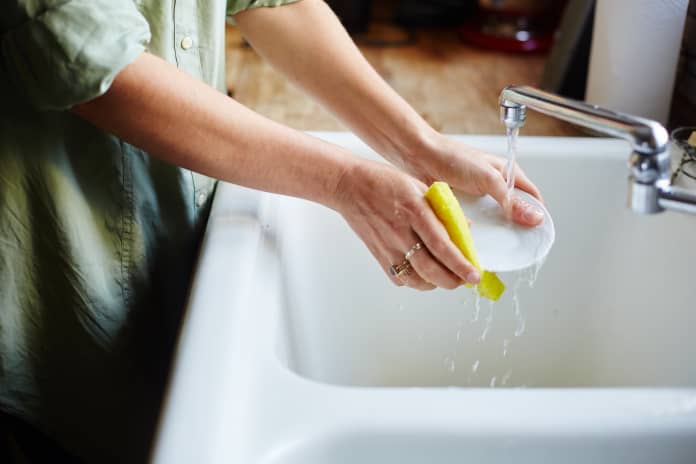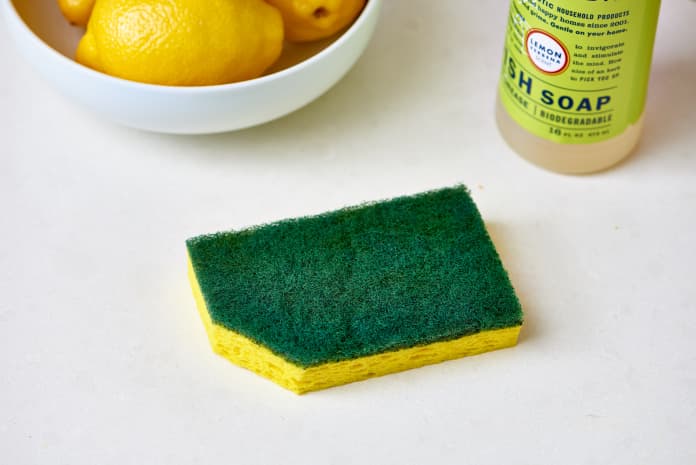Raise your hand if you use kitchen sponges? What they lack in longevity, they make up for in convenience and effectiveness. Not to mention, they’re handy for more than just washing dishes. We’re fairly certain these clean-up workhorses will always have a place in our kitchens. As with any tool, be it a spatula or a scrub brush, sponges should be cared for properly. Mostly that means avoiding these common mistakes.
Five Things You Should Never Do With Sponges.
1. Don’t microwave your sponge
2. Don’t disinfect your sponge at all, for that matter.
It turns out disinfecting a sponge might actually be counterproductive. A study from Scientific Reports found that trying to disinfect your dirty sponge will only kill some of the bacteria on it, leaving the strongest strains behind on the sponge, which then colonize to create even more pathogenic bacteria. Meaning, you’ll end up spreading germs around on the plates you’re trying to clean.
3. Don’t use your sponge longer than a week
The only solution to the gross-sponge problem, given the alternatives, is routine replacement. Because you’re not going to be disinfecting it, swap out your frequently-used sponge once a week and your rarely-used sponge every two weeks. If it becomes smelly or takes on a grayish tint, you’ll want to swap it out right away, as those could be signs the sponge is harboring bacteria.
4. Don’t use it to soak up meat juices
Because sponges can harbor bacteria, you do not want to use one to wipe up meat juices and then to clean your dishes. In this case, it’s really best to use paper towels and a disinfectant cleaner.
5. Don’t use it for mixed jobs
You also probably don’t want to use your dish sponge to wipe down your counters or handle other messy jobs. It’s best to keep one sponge for dishes and only dishes. If you’re storing more than one sponge around your sink, consider cutting the corner off the dish one so that you can always tell which one is which.
Got anything else to add to this list? Leave your ideas in the comments below!










